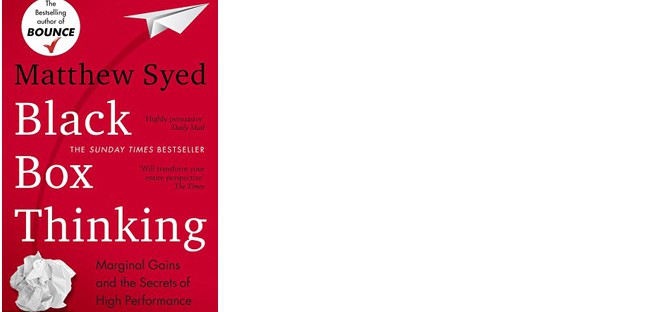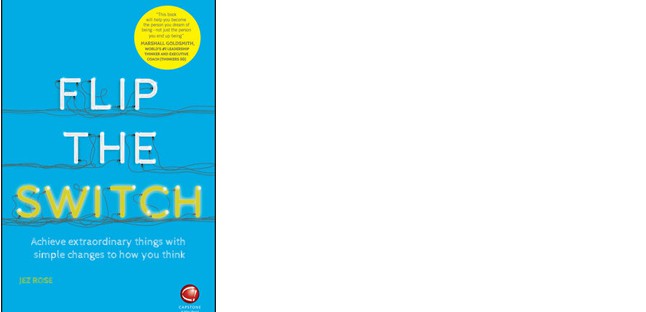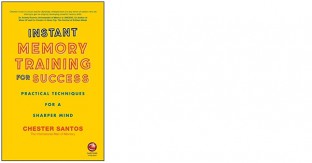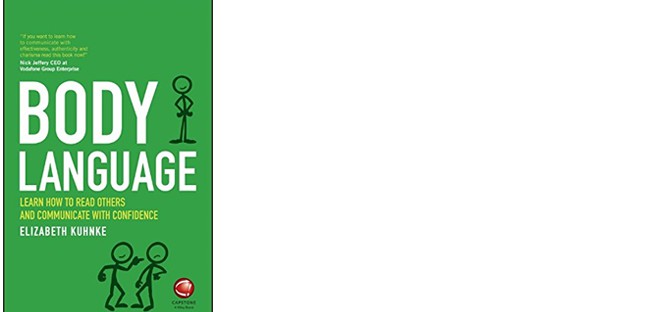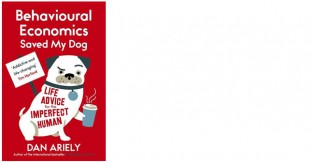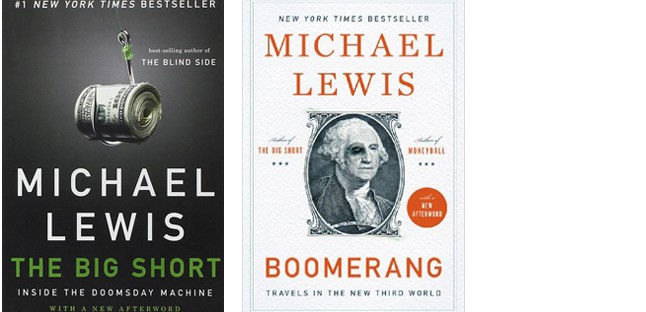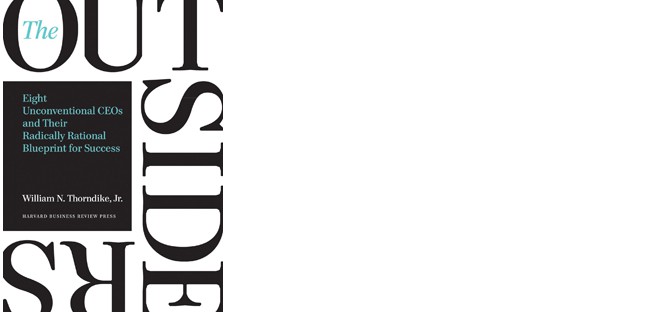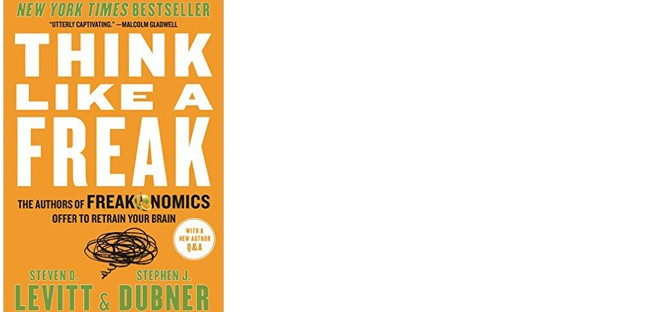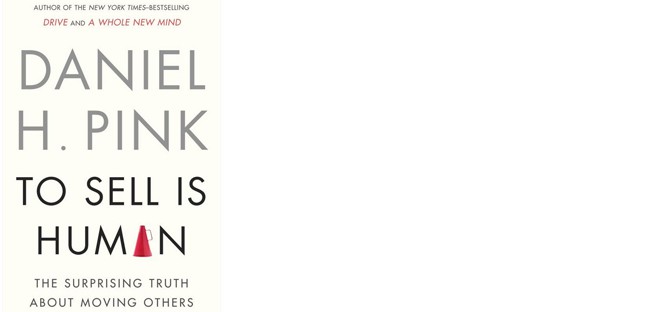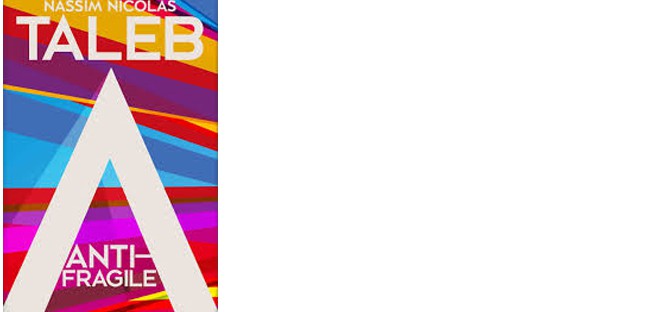Back to all posts
Latest posts
A masterclass in creating value
What’s going on at parkrun?
Virtue-signalling all the way to the bank
Bud Light: brand purpose or virtue-signalling?
The Coddling of the American Mind, by Greg Lukianoff and Jonathan Haidt
Belonging, by Owen Eastwood
Such a simple thing
The Long Win, and The Scout Mindset
The Cult of We by Eliot Brown and Maureen Farrell
Coffee and covid modelling
By theme
Marketing strategy
Insight & metrics
Innovation & inspiration
Brand & positioning
Marketing communications
Business purpose
Leadership
By industry sector
Financial services
Retail
FMCG
Technology & start-ups
Consumer services
Business to business
Other sectors
By type
Books
Comment
Quotes
Thought leadership
Why can’t we learn from failure? Because even in a no-blame culture it is human to deceive ourselves, and we don’t even know we’re doing it. It’s hard to change a belief we’re invested in, as Syed illustrates with true stories of miscarriages of justice, in which bad verdicts were maintained despite clear evidence they were wrong.
This book is recommended reading for anyone trying to learn, improve or innovate at work. In a well-researched book full of engrossing examples, Read More
No one can make you feel inferior without your consent, said Eleanor Roosevelt. Jez Rose is not so succinct. His book is about the idea that other people can’t make you feel things or react in prescribed ways. You can control how you feel and how you will respond. Between stimulus and response there’s a gap in which to choose. That’s where you can “flip the switch”.
The obvious way to “flip the switch” Read More
This book promises “practical techniques for a sharper mind”. If you believe, as the author does, that a sharper mind means being able to remember stuff, then it delivers. It walks you through easy, step-by-step exercises to build your ability to remember. The author is a US memory champion, so we can believe him when he says you have to study and practise, as he does.
Why bother? The examples in the introduction aren’t convincing, Read More
“Learn how to read others and communicate with confidence” says the subtitle. It’s a useful reminder to be conscious of your own body language and that of others, but if there is a universal body language you can learn to read and to speak, this little book only does pidgin level. Approach it as a refresher of the basics you already know. It doesn’t reveal any great secrets, but there are a few useful tips to help you maximise positive impact. Read More
The best reason to read this short book is to spend time in the company of the author. Dan Ariely is funny and wise, thought-provoking and outspoken, prejudiced and playful, and not afraid to stick his neck out (for example, on the merits of marriage, and how to decide whether to get married). The book is an entertaining collection from his Wall Street Journal advice column, each question and response complemented by a witty cartoon. Read More
Liar’s Poker, Michael Lewis’s first book, dramatised the crazy excesses of 1980s Wall St. It was rather like the Wolf of Wall Street but without the 18 certificate. But Michael Lewis knows how to make potentially dull stuff into a good read too, so if you feel you ought to know about the 2008 financial crisis but can’t face reading about it, The Big Short is the book for you. It’s a neat little paperback (or ebook, Read More
Here’s a book that flies in the face of the zeitgeist. Subtitled, “Eight Unconventional CEOS and their radically rational blueprint for success”, it offers lessons from business leaders who have delivered consistently great financial returns in the long term.
Partly in response to the cult of the celebrity CEO, personified by Jack Welch, Thorndike identified all the US companies who had outperformed both their industry peers and GE under Jack Welch over a period of many years. Read More
Almost ten years ago these two – Levitt the iconoclastic economist and Dubner the journalist -published Freakonomics, in which they confronted received wisdom and political correctness. Levitt’s approach is about finding true cause and effect by daring to ask different questions and using data without prejudice. In a way it’s the precursor of behavioural economics, nudge theory and all that, because it reveals how frequently outcomes are shaped by unseen forces, rather than being conscious choices. Read More
Selling has a bad name, especially in Europe. And here’s an American trying to tell us we are all selling, all the time. Sounds yuck? Fortunately it’s a lot more subtle than that. In fact he’s really saying that true selling is not about foot-in-the-door persistence but about listening, empathy, and seeking to serve others. You knew that already didn’t you? So you can skip the first section, where he redefines selling and illustrates how we are all natural sales people. Read More
This may be the only business book you read that covers Greek philosophy, ancient myths, modern parables featuring Fat Tony and Nero (characters from Taleb’s earlier books) and some personal stories, both from the author’s early life in Lebanon and from his more recent experience as a hate figure for classical economists. It’s a demanding and exhilarating read – skim-read half a page and you could jump two thousand years – but it deserves to be read properly. Read More
Back to all posts
Latest posts
A masterclass in creating value
What’s going on at parkrun?
Virtue-signalling all the way to the bank
Bud Light: brand purpose or virtue-signalling?
The Coddling of the American Mind, by Greg Lukianoff and Jonathan Haidt
Belonging, by Owen Eastwood
Such a simple thing
The Long Win, and The Scout Mindset
The Cult of We by Eliot Brown and Maureen Farrell
Coffee and covid modelling
By theme
Marketing strategy
Insight & metrics
Innovation & inspiration
Brand & positioning
Marketing communications
Business purpose
Leadership
By industry sector
Financial services
Retail
FMCG
Technology & start-ups
Consumer services
Business to business
Other sectors
By type
Books
Comment
Quotes
Thought leadership
